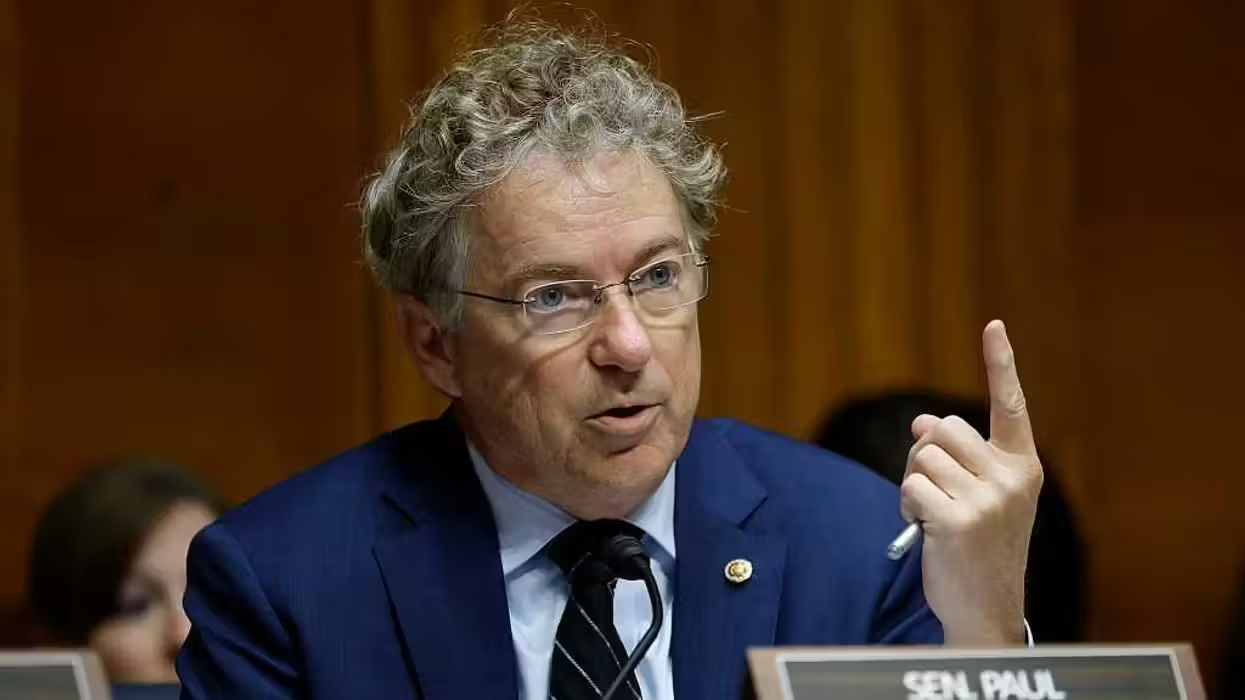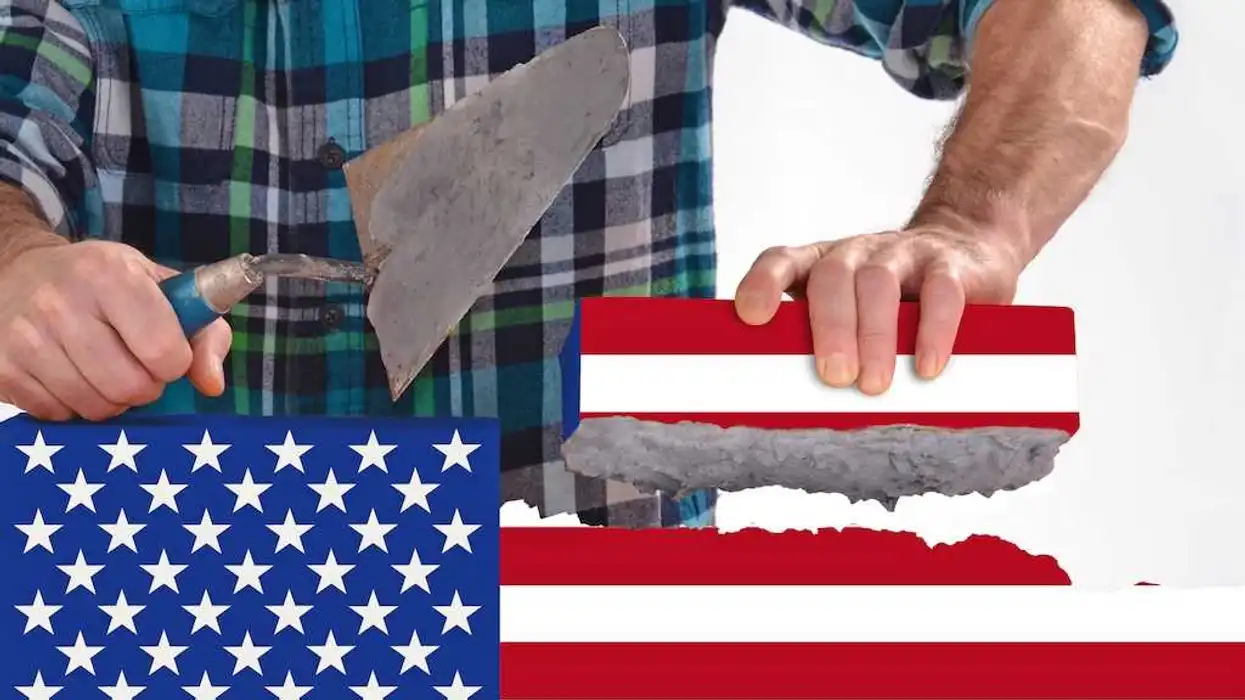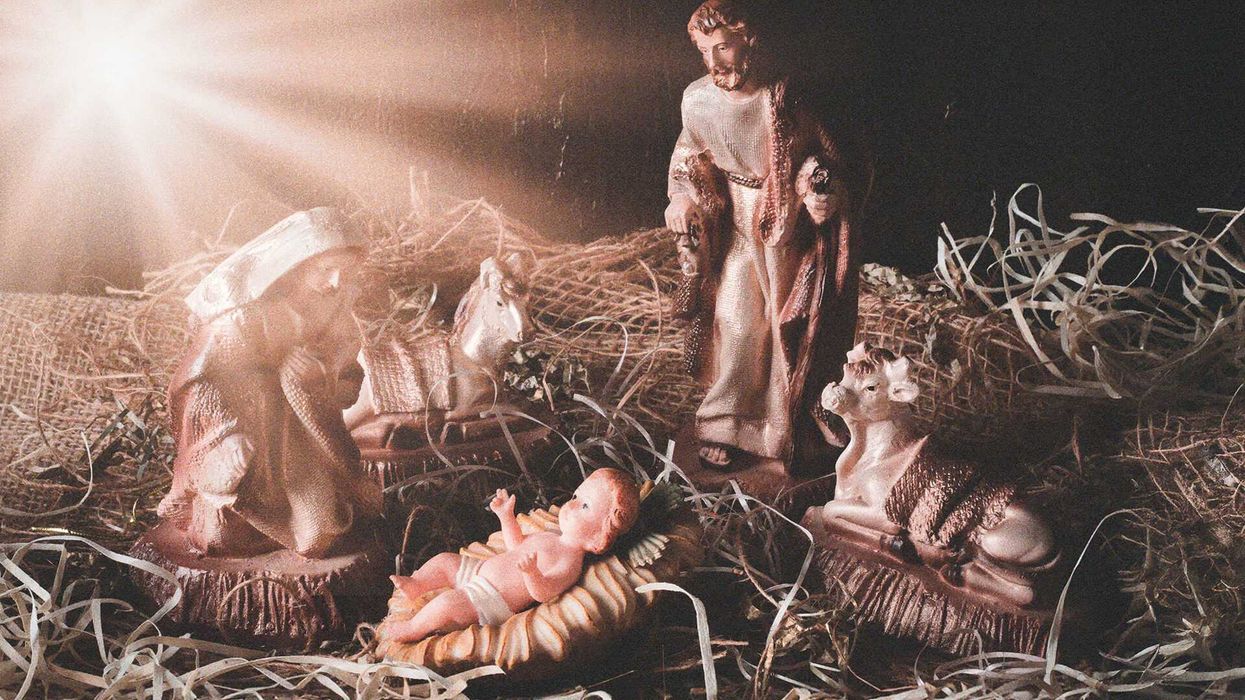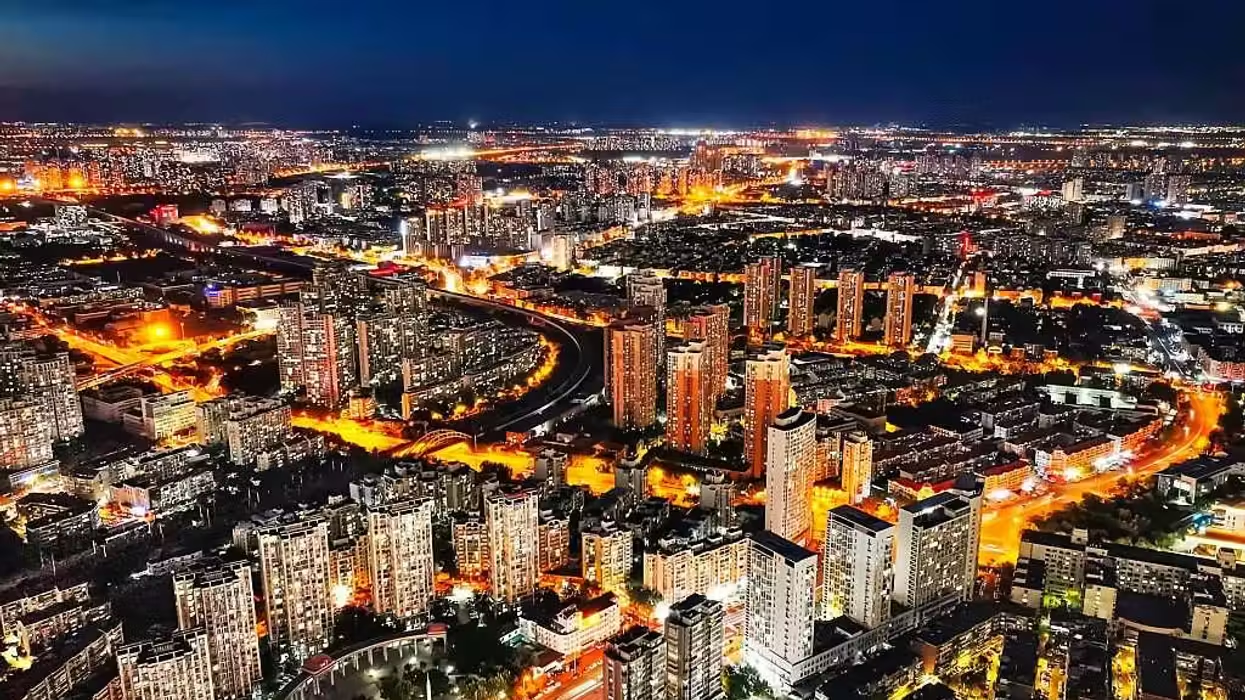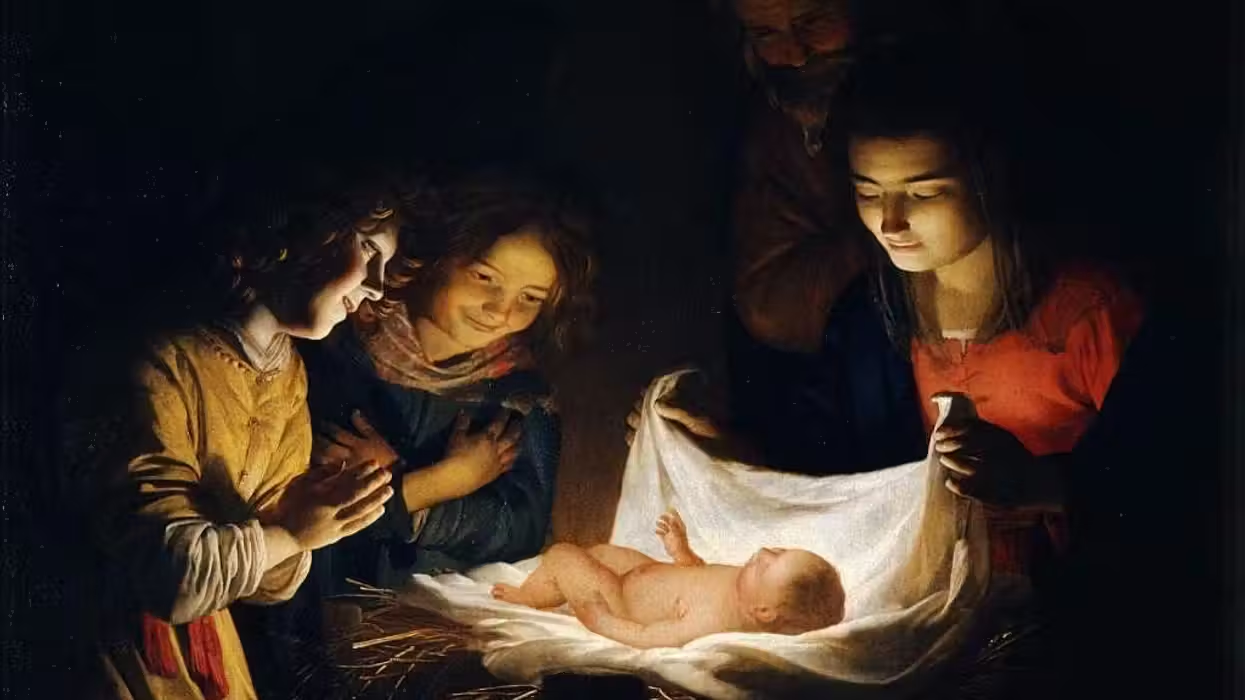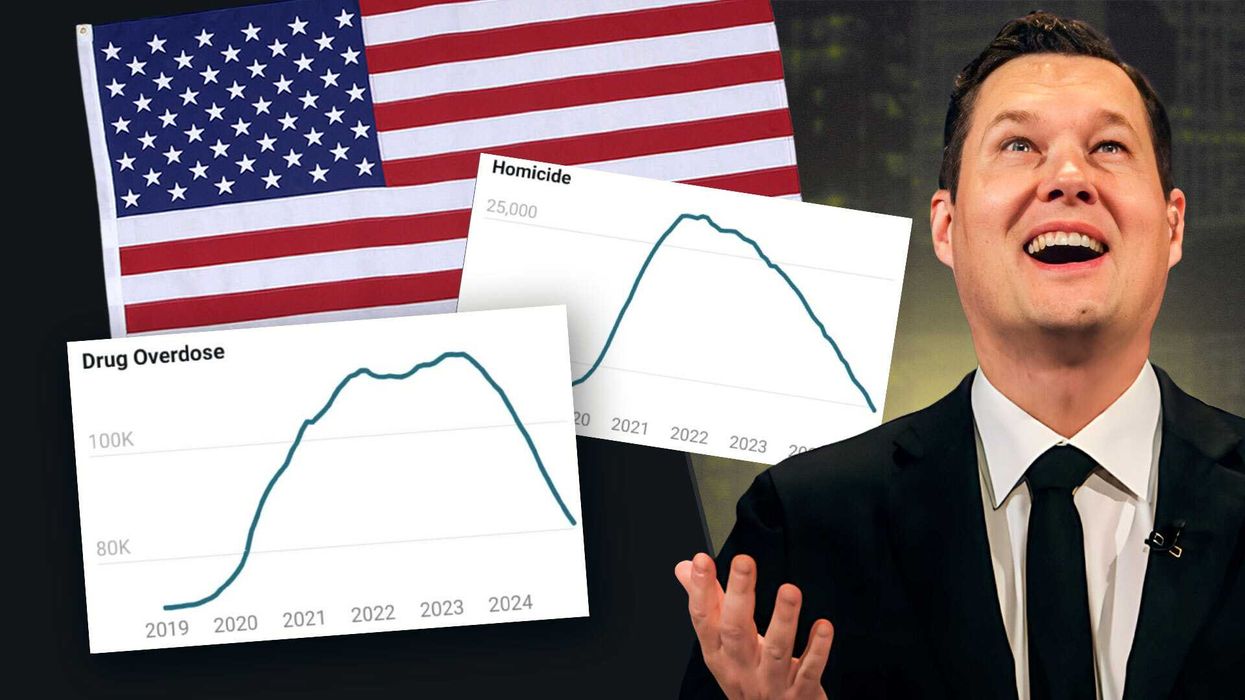© 2025 Blaze Media LLC. All rights reserved.
Really? Is Anybody Worried the Mob Might Have an Eye on Gambling in Chicago?
June 04, 2011
"As an outfit guy ... I am going to get a piece of something somewhere."
CHICAGO (AP) — The way Chicago Mayor Rahm Emanuel sees it, thousands of craps players and slot machine pullers would flock to his cash-strapped city if it gets into the gambling business. It's a safe bet a seedier element will be right behind them.
This is Chicago, after all, where the shadow of Al Capone still looms, federal corruption trials appear like television reruns, and the remnants of the mob are sure to try for a piece of the action.
Illinois lawmakers voted this week to allow legal gambling for the first time in Chicago. Backers envision a new casino and video poker machines across the nation's third-largest city, from its two international airports to corner bars. It's part of an ambitious statewide expansion of gambling lawmakers have sent to Gov. Pat Quinn.
None of it sits well with the Chicago Crime Commission, whose public enemies list once included Scarface and other gangsters who based their bootlegging and other criminal enterprises out of Chicago.
"If the gaming legislation that passed becomes law, political corruption and crime syndicate infiltration will follow," said J.R. Davis, president and chairman of the 92-year-old nonprofit organization that studies and promotes crime prevention in the city.
At least one former mobster agrees: Millions of dollars would be too enticing for the corrupt and the criminal.
"It's a lifeline that whatever outfit guys are left are going to use," said Frank Calabrese Jr., who wore an FBI wiretap to help convict his mobster father and later wrote a book about it. "As an outfit guy ... I am going to get a piece of something somewhere."
Lobbying by Emanuel, Chicago's first new mayor in two decades, is credited for facilitating the plan's approval. But neither he nor lawmakers who sponsored the legislation are talking specifics about how the city would thwart Davis' prediction.
Emanuel said this week that there would be a "blue ribbon group" appointed if Quinn signs the legislation into law. Quinn has opposed an ambitious expansion of gambling in the state but supports the idea of a casino in Chicago, which is facing a budget shortfall of between $500 million and $700 million. Proponents say gambling will mean the state will collect $1.6 billion in upfront fees to those who what to set up shop in Illinois and then another $500 million a year. Emanuel said the casino also would keep gamblers and their money from crossing the state line to casinos in Indiana. "We lose $20 million, around, a month to Hammond, Ind.," he said.
A leading proponent, Chicago Democratic Rep. Lou Lang, said there have been "zero scandals" with the state's existing casinos. Lang argued that if the mob tried to move in, regulators would clamp down, like they did a few years ago when the state nixed a planned casino in suburban Rosemont after getting word investors may have had mob ties.
"To automatically link casinos with organized crime when there is no hint of that in Illinois to date ... is a stretch," said Lang, who has worked for years to expand gambling in Illinois.
But this is Chicago, where Capone based his bootlegging empire during Prohibition and Tony "Big Tuna" Accardo ran the show after that with, according to one estimate, 10,000 gambling spots. Chicago was Sam Giancana's base of operations until his mob career ended in 1975 when he was gunned down as he fried up sausages at home. So notorious is the city's history of organized crime that tour guides offer specific routes to show off mob bosses' former hangouts.
While the outfit is a shadow of its former self, it's still here, and it has an interest in gambling.
Just last year, reputed mobster Michael "The Large Guy" Sarno was convicted of orchestrating the 2003 bombing of the suburban Chicago office of a rival video gaming company. The bombing, federal prosecutors said, was designed as a message to the company to stop horning in on a lucrative mob business.
Gambling expert William Thompson of the University of Nevada at Las Vegas said the mob would have a tough time gaining a foothold in Chicago casinos because investors wouldn't shell out millions of dollars if there were even a hint of organized crime involvement.
"They're wary of having criminal elements involved where they might lose their (gaming) license," he said.
Regulation could be pricey, with some predicting it could cost millions to fund the small army that would be needed to monitor casinos, bars, restaurants, race tracks and other locations where thousands of slot and video poker machines could be set up.
"The way the Illinois Gaming Board operates, where people are able to gamble, we have agents present," board spokesman Gene O'Shea said.
Still, Thompson believes mobsters would be lurking around the edges — many, many edges since the legislation calls for tripling the number of gaming tables, slot and video poker machines in Illinois to more than 39,000, including 4,000 in Chicago.
"The mob is going to come in on the side, run the loan shark businesses, have the prostitutes," he said, adding that a loan shark could be someone sitting at a corner table or the bartender, pulling money out of the till. "There's no way to police it."
Even a weakened mob is strong enough to take advantage of a whole new revenue stream, said Gus Russo, author of a book about the Chicago mob called "The Outfit." The mob's history has been one of turning what people want — be it alcohol or gambling, drugs or prostitutes — into money.
"They're like cockroaches. If they see a scam they will be a part of it," Russo said. "And if they're not a part of it, it will be the first time in history."
Want to leave a tip?
We answer to you. Help keep our content free of advertisers and big tech censorship by leaving a tip today.
Want to join the conversation?
Already a subscriber?
more stories
Sign up for the Blaze newsletter
By signing up, you agree to our Privacy Policy and Terms of Use, and agree to receive content that may sometimes include advertisements. You may opt out at any time.
Related Content
© 2025 Blaze Media LLC. All rights reserved.
Get the stories that matter most delivered directly to your inbox.
By signing up, you agree to our Privacy Policy and Terms of Use, and agree to receive content that may sometimes include advertisements. You may opt out at any time.

